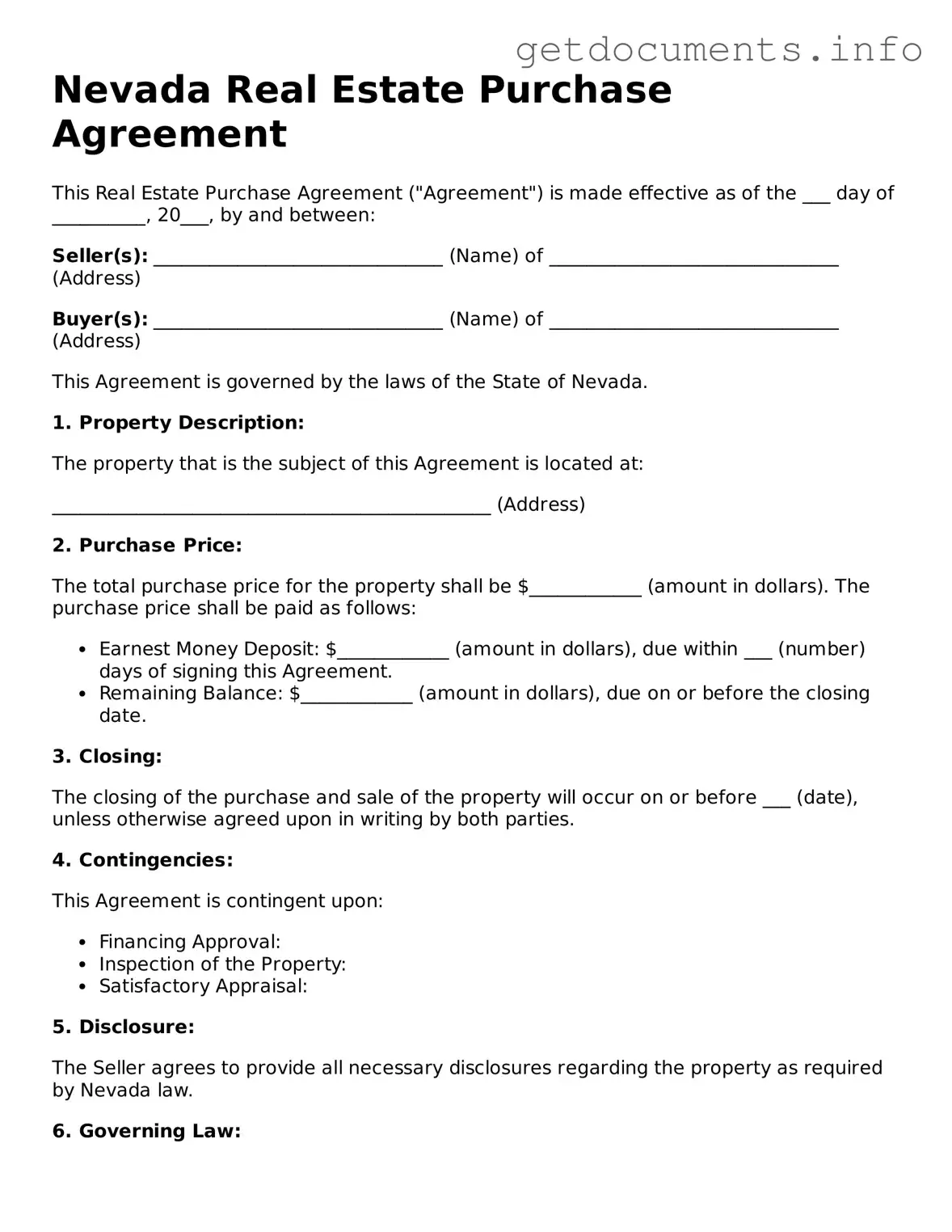Free Real Estate Purchase Agreement Template for Nevada
The Nevada Real Estate Purchase Agreement is a legally binding document used to outline the terms and conditions of a property sale in Nevada. This form serves as a crucial tool for both buyers and sellers, ensuring that all parties understand their rights and obligations during the transaction process. To get started on your property journey, fill out the form by clicking the button below.
Access Real Estate Purchase Agreement Editor

Free Real Estate Purchase Agreement Template for Nevada
Access Real Estate Purchase Agreement Editor
Got places to be? Complete the form fast
Fill out Real Estate Purchase Agreement online and avoid printing or scanning.
Access Real Estate Purchase Agreement Editor
or
⇩ PDF File
